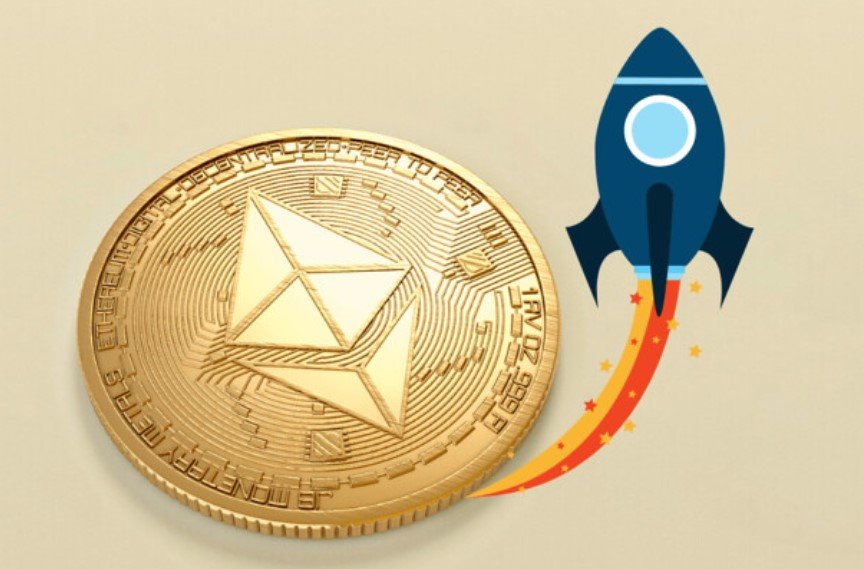The crypto community is eagerly awaiting the decision of the US Securities and Exchange Commission (SEC) on the approval of spot Ethereum ETFs, which could open the door for more institutional and retail investors to enter the crypto market. Ethereum ETFs are financial products that track the price of Ethereum, the second-largest cryptocurrency by market cap, and trade on traditional stock exchanges. They offer a regulated and convenient way for investors to gain exposure to Ethereum without the need to buy and store the digital asset directly.
What are the Benefits of Ethereum ETFs?
Ethereum ETFs could provide significant advantages to the Ethereum ecosystem, as well as the entire crypto market. Some of the potential benefits are:
- Increased accessibility: Ethereum ETFs would make it easier for investors to access Ethereum through their existing brokerage accounts, without the hassle of setting up a crypto wallet, dealing with private keys, or worrying about security breaches. This could attract more capital and liquidity to the crypto market, especially from institutional investors who have strict compliance and regulatory requirements.
- Heightened credibility: Ethereum ETFs would also enhance the legitimacy and reputation of Ethereum and the crypto industry as a whole, as they would imply a certain level of recognition and approval from the SEC. This could boost investor confidence and reduce the perceived risk and volatility of investing in crypto assets.
- Lower fees: Ethereum ETFs would likely have lower fees than other investment vehicles that offer exposure to Ethereum, such as trusts or funds. For example, the Grayscale Ethereum Trust, which is currently the largest Ethereum investment product, charges an annual fee of 2.5%, while ETFs typically charge less than 1%. Lower fees mean higher returns for investors in the long run.

What are the Challenges of Ethereum ETFs?
Despite the optimism and anticipation, Ethereum ETFs still face some challenges and uncertainties before they can become a reality. Some of the main hurdles are:
- Regulatory scrutiny: The SEC has been notoriously cautious and skeptical about approving crypto ETFs, citing concerns over market manipulation, fraud, custody, and investor protection. The SEC has rejected several Bitcoin ETF proposals in the past, and has recently delayed its decision on Fidelity’s spot Ethereum ETF filing, which was initially expected by January 25. The SEC now has until March 10 to approve or deny the application, or extend the review period further.
- Classification issue: Another challenge for Ethereum ETFs is the need for clarity regarding Ethereum’s classification as a security or non-security by the SEC. Unlike Bitcoin, which has been deemed a non-security by the SEC, Ethereum has a more complex history and structure, involving a pre-sale, a foundation, and a network of developers. The SEC has not made a definitive statement on Ethereum’s status, which could affect the prospects and feasibility of Ethereum ETFs.
How is Ethereum Performing Ahead of the Decision?
Ethereum has been on a bullish trend lately, reaching new all-time highs and outperforming Bitcoin in terms of percentage gains. Ethereum’s price is currently $3,857, up by 15% in February and by 450% in the past year. Its market cap is $447 billion, ranking second on CoinMarketCap.
Some of the factors driving Ethereum’s rally are:
- Network upgrades: Ethereum has been undergoing a series of network upgrades, known as Ethereum 2.0, that aim to improve its scalability, security, and efficiency. The most recent upgrade, the London hard fork, implemented a major change in Ethereum’s fee structure, introducing a mechanism that burns a portion of the transaction fees, reducing the supply of Ethereum and increasing its scarcity and value.
- DeFi and NFT growth: Ethereum is also benefiting from the explosive growth of decentralized finance (DeFi) and non-fungible tokens (NFTs), which are mostly built on its platform. DeFi and NFTs are innovative applications that enable users to access various financial services and digital assets without intermediaries, such as lending, borrowing, trading, gaming, and art. The total value locked in DeFi protocols has surpassed $100 billion, while the total sales volume of NFTs has exceeded $10 billion, according to DeFi Pulse and NonFungible.com.
- ETF anticipation: Ethereum is also riding the wave of optimism and speculation surrounding the potential approval of Ethereum ETFs, which could boost its adoption and demand among a wider range of investors. Several reputable firms, such as Fidelity, WisdomTree, VanEck, and ProShares, have filed for Ethereum ETFs with the SEC, signaling their confidence and interest in the crypto asset.











